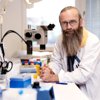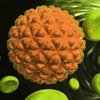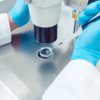Fritextsökning
Artiklar per år
Innehållstyper
-

New report: Fewer PhDs in life sciences
A new report from Vinnova suggests that competency returns in the life science sector are declining.
-

Confidence in childhood vaccines is in decline worldwide
Since the pandemic, confidence in vaccinating children has plummeted. In a new report, UNICEF urges world leaders to act before the situation worsens. In 52 out of 55 countries surveyed, public perception of the importance of vaccinating children has declined.
-

Uncertainty about the government’s life science work
The government’s national coordinator for life science, Jenni Nordborg, left her position almost four months ago. No one has yet succeeded her, and now questions are being raised both about the government’s plans for the office and the Swedish life science strategy.
-

Pfizer’s record year – topped the $100 billion mark
In 2022 Pfizer, as the first pharmaceutical company in history, reached an annual revenue of more than 100 billion dollars, thereby surpassing Johnson & Johnson as the industry’s top selling business.
-

He got inside the head of Sweden’s vaccine hunter
The hunt for the COVID-19 vaccine is the theme of the new book Vaccinjägaren (The Vaccine Hunter). It tells the story of Richard Bergström’s mission as Sweden’s national vaccine coordinator and the scheming that went on behind the scenes in Europe. Author and medical journalist Nils Bergeå co-wrote the book with Richard Bergström.
-

New diagnostic rules raise concerns
In a panel discussion, several voices from academia and the industry expressed concerns about the transition to the new regulatory framework for in-vitro diagnostics (IVDR). They argue that it may create significant differences between regions, and patients may be affected.
-

New drug alert in the US: Rise in overdoses linked to the use of drugs for animals
A combination of the synthetic drugs fentanyl and xylazine, an animal tranquilizer, has been labelled a “growing threat” by the White House due to its role in the ongoing opioid crisis in the US.
-

Nya data från Medivir vid cancerkongress
Forskningsbolaget Medivir har presenterat data för en trippelkombination med läkemedelskandidaten fostrox vid kongressen AACR 2023.
-

Elypta awarded one million USD from the Star Trek creator’s foundation
Swedish company Elypta, which develops methods for early cancer detection, has been awarded one million USD from an unexpected source: a foundation set up in memory of the creator of Star Trek.
-

Conference on Alzheimer’s reveals several advances in the field
In Gothenburg, Sweden, researchers and pharmaceutical companies from all over the world gathered to discuss one specific issue – neurological diseases. Life Science Sweden has talked to some of those that attended the conference.
-

The impact of the recession on the Swedish medtech sector
We need health care regardless of whether the economy is good or bad, but the current recession also affects the Medtech sector.
-

He will be the new chair of Medicon Valley Alliance
Niels Abel Bonde is the nomination committee’s proposal and the most likely person to take over as the new chairman of the Swedish-Danish life science cluster organisation Medicon Valley Alliance (MVA).
-

Beslut idag: 17 innovationsprojekt får finansiering
I tuff konkurrens har 17 nya innovationsprojekt inom life science valts ut och får finansiering via Medtech4health och Swelife.
-

Protein hjälper cancerceller att utveckla resistens mot cytostatika
Olika cytostatika attackerar cancerceller på olika sätt, med syftet att de ska dö. Ett sätt är att angripa cancercellernas DNA.
-

KI’s new President: “We need to work closer together”
A closer link between research and education and a stronger “we-feeling” are aims that Annika Östman Wernerson sets out to achieve as the new President of Karolinska Institutet. She will not give up her research entirely though. “I think it’s crucial to maintain a close presence in the business,” she says.
-

Vinnova is going to establish a new innovation cluster
Vinnova, the Swedish Agency for Innovation Systems, has been commissioned by the government to establish a national innovation cluster for advanced medicines.
-

Meeting with focus on South Korea and Japan’s life sciences
Large, complex and exciting – this is how Britta Stenson, Business Sweden, describes the life science markets of Japan and South Korea, which took centre stage during a webcast seminar.
-

Den enes snor blir den andres bot
Snortransplantation – ordet ger rysningar. Nu presenteras en studie där skånska patienter med kronisk tjock snuva, förbättrades efter att ha använt nässprej innehållande snor från en närstående person med frisk näsa.
-

Major advances in IVF labs in the last few decades
Since the introduction of in vitro fertilisation several decades ago, many developments have been made in the field, and the main part of that development has taken place in the lab.
-

Så mycket väntas lecanemab sälja globalt
Försäljningen av Leqembi (lecanemab), som nyligen fick ett accelererat USA-godkännande som behandling mot Alzheimers sjukdom, väntas globalt uppgå till sju miljarder dollar år 2030, enligt det japanska läkemedelsbolaget Eisai.
-

Vätgas och jordbakterier, vår framtida energikälla?
Bakterier som överlever i extrema miljöer som vulkankratrar, djuphav eller antarktis är kända för att kunna använda vätgas ur den omgivande atmosfären som energikälla. Men hur lyckas de med det?
-

“I am driven by the desire to develop a product that can be sold worldwide”
Ranked number one in the world by the WHO in diarrhoea research and soon in phase III studies for its vaccine candidate – Scandinavian Biopharma is rushing forward in the pursuit of the world’s first ETEC vaccine. Meet the company’s CEO Björn Sjöstrand.
-

Column: ”Cheating with pea flowers and does it matter whether you are right?”
Is it possible to forgive shortcuts or outright cheating in science - if it turns out that the researcher was ultimately right? Anna Törner discuss this topic in a column.
-

”Jag drivs av att ta fram en produkt som kan säljas i hela världen”
Rankade som nummer ett i världen av WHO inom diarréforskning och snart i fas III-studier för sin vaccinkandidat – Scandinavian Biopharma rusar fram i jakten på världens första ETEC-vaccin. Möt företagets vd Björn Sjöstrand.